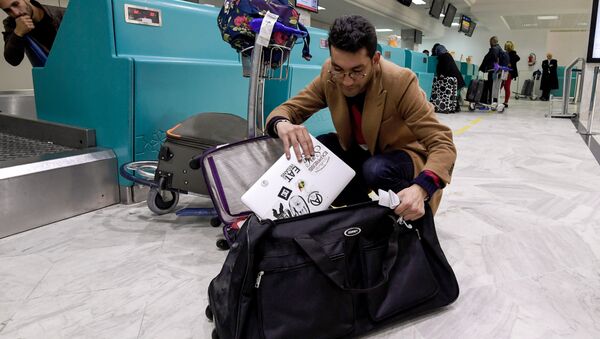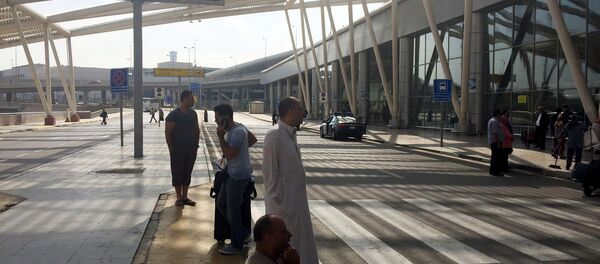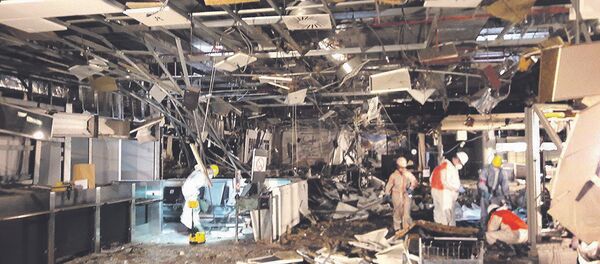According to the sources, cited by US media, terrorists have gotten hold of sophisticated airport security equipment, which can allow them to properly conceal explosive devices in large electronic devices such as laptops.
“We are lagging behind with our scanning technology unable to detect evolving threats. We are also behind in the “back door” of aviation security and the employee vetting process, which is inconsistent from one country to the next,” Jeffrey Price said.
When asked how difficult it would be to create the so-called “laptop bombs, he said that it does take “a bit of sophistication and some experience.”
Speaking about how airport security scanners work, Jeffrey Price said that they are going to become more and more sophisticated.
“As for explosive detection type systems, which are X-ray like systems taking a 360-degree picture of a device, slicing and dicing it and examining each slice for potential explosive or dangerous elements.”
“So there are essentially two types of security scanning equipment out there: standard X-ray and explosive detection systems,” professor Price added.
Having a laptop on board a plane is convenient and gives passengers a chance to relax and entertain themselves during flights.
However, the probability of “laptop bombs” making their way on board could result in laptops being banned on planes, which, in turn, would lead to the loss of passenger freedom.
'We need a new aviation security system that will not infringe on our freedom. I believe that in the future technology will get more and more sophisticated and better able to identify those things,” he added.
According to Fox 5 New York channel, the data also shows that Daesh is among several terrorist groups plotting to put bombs in laptops on US-bound airplanes.
Fox 5 added that previously terrorists had had some success with such explosive devices. In particular, six passengers were hurt in a laptop bomb explosion on a plane at an airport in Somalia last March.
Have you heard the news? Sign up to our Telegram channel and we'll keep you up to speed!




